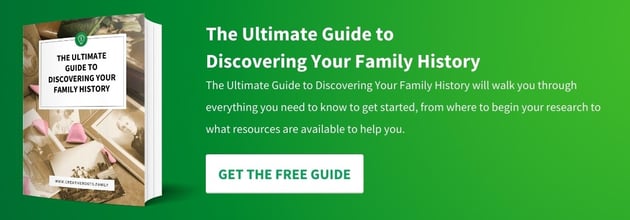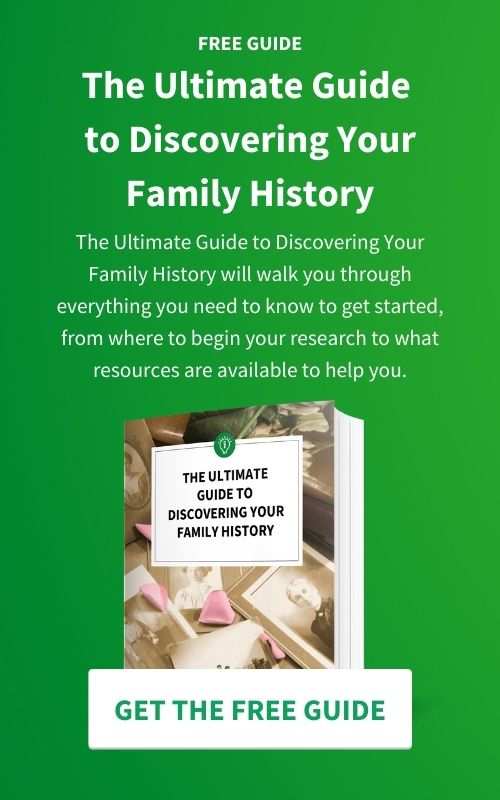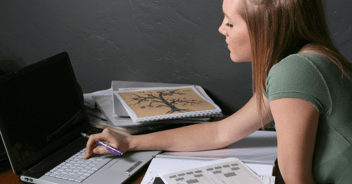A Comprehensive Guide to Heritage Discovery
Photo by Andrea Piacquadio on Pexels.com
Embarking on a journey to discover one's heritage is like opening a treasure chest filled with stories, traditions, and a profound sense of identity. Heritage Discovery plays a pivotal role in understanding our family history, contributing significantly to personal identity. In this blog, we will delve into the basics of Heritage Discovery, explore the tools and techniques available for ancestral research, provide a step-by-step guide for initiating your own search, and discuss the importance of making connections and sharing your findings with the world. Join us as we unravel the secrets of the past and empower you to start your own ancestral search.
The Basics of Heritage Discovery
Heritage Discovery encompasses the exploration and understanding of one's familial and cultural background. It goes beyond mere genealogy, delving into the stories, traditions, and historical contexts that shape a family's identity. The scope of Heritage Discovery is vast, ranging from uncovering long-lost relatives to understanding the cultural influences that have shaped a family's journey through time.
Benefits of Heritage Discovery
The rewards of delving into one's heritage are manifold. Feeling a sense of belonging is a common outcome, as individuals connect with their roots and understand the tapestry of their family history. Preserving history becomes an inherent part of this process, ensuring that the legacy of generations past is not lost to time. Additionally, Heritage Discovery often acts as a catalyst for rekindling family bonds, as shared stories and traditions become a bridge between generations.
Identity and Belonging:
Imagine discovering that your ancestors were part of a particular cultural or ethnic group with distinct traditions. Embracing this heritage might inspire you to actively participate in cultural events, learn traditional practices, or even connect with individuals who share the same background. This newfound connection can create a profound sense of belonging, enriching your identity and providing a community where you feel understood and accepted.
Preserving Family History
Many families possess old photographs, letters, or artifacts that hold significant historical value. Through Heritage Discovery, you might unearth these treasures and take steps to preserve them. For instance, digitizing photographs, creating a family archive, or organizing a family history day where these items are showcased can help ensure that the rich history of your family is not lost to time. This active preservation becomes a tangible legacy for future generations.
Strengthening Family Bonds
Heritage Discovery often involves engaging with family members to gather information and stories. In doing so, you may uncover shared experiences, challenges, or triumphs that become the foundation for stronger familial connections. For instance, organizing regular family reunions where stories are shared, or initiating projects like a collaborative family tree can foster a sense of unity and reinforce the importance of family ties across generations.
Cultural Appreciation and Understanding
Uncovering your heritage may reveal cultural practices, rituals, or customs that have been passed down through the generations. Taking the time to understand and appreciate these aspects can lead to a deeper connection with your roots. For example, learning traditional recipes, participating in cultural festivals, or practicing ancestral rituals can provide a hands-on experience that enhances your appreciation for the cultural tapestry woven by your forebears.
Inspiring Future Generations
By actively engaging in Heritage Discovery, you set an example for future generations. Your commitment to understanding and preserving family history can inspire younger family members to take an interest in their roots. Consider involving them in the process, such as interviewing elders together, creating a family timeline, or encouraging them to explore their heritage through school projects. This ensures that the flame of curiosity and connection to heritage continues to burn brightly in the generations to come.
The benefits of Heritage Discovery extend beyond abstract concepts, manifesting in tangible actions that enrich personal and familial experiences. From actively participating in cultural traditions to preserving historical artifacts, the practical applications of these benefits contribute to a meaningful and lasting connection with one's heritage.
Methods and Tools for Researching Ancestry
The digital age has ushered in a revolution in the realm of Heritage Discovery, offering a diverse array of tools and techniques to uncover the mysteries of one's ancestry. These modern methods not only provide a wealth of information but also facilitate a more dynamic and interactive exploration of family history. Let’s look at a few examples:
Genealogy Websites
Genealogy websites such as Ancestry.com and MyHeritage have become virtual treasure troves for individuals on a quest to understand their lineage. These platforms offer access to vast databases, including census records, birth and death certificates, immigration documents, and military records. By inputting basic information, users can trace their family tree with a few clicks, unveiling a detailed narrative of their ancestors' lives. For instance, discovering a great-grandparent's immigration records might reveal the challenges they faced and the resilience that led to the establishment of your family in a new land.
DNA Testing
DNA testing services, such as 23andMe and AncestryDNA, provide a unique and scientifically grounded approach to Heritage Discovery. By analyzing your genetic makeup, these tests can unveil ethnic origins, connect you with distant relatives, and even shed light on migration patterns. Imagine finding a DNA match with a long-lost cousin, leading to the discovery of shared ancestors and the opportunity to piece together a more complete family history.
Historical Archives
Traditional historical archives remain an invaluable resource for delving into the past. Local archives, libraries, and government repositories house documents that may not be digitized but hold crucial information about your ancestors. For instance, exploring land records, court documents, and old newspapers can reveal not only names and dates but also the context of your family's historical journey. Discovering a great-great-grandparent's land deed might provide insights into their economic pursuits and social standing in a bygone era.
Collaboration and Oral History
While digital tools provide an efficient means of gathering data, the richness of heritage exploration lies in the personal narratives and stories passed down through generations.
Organizing family reunions serves as a practical and enjoyable way to foster collaboration in heritage discovery. During these gatherings, family members can share stories, and anecdotes, and even bring along old family photographs or artifacts. Such events provide a platform for collective memory-building, sparking discussions that lead to new revelations about your family's history. For instance, an aunt might unveil a long-forgotten family recipe, offering a glimpse into the culinary traditions that have been handed down through the years.
Documenting Oral HistoriesEngaging in oral history is a powerful means of preserving the living record of your family's narrative. Set aside dedicated time to interview older family members, capturing their memories, traditions, and experiences in their own words. This not only adds a personal touch to your heritage journey but creates a tangible legacy for future generations. Consider recording these interviews, creating a podcast, or transcribing them into a written format. This way, the voices of your ancestors resonate across time, sharing wisdom and stories that might otherwise be lost.
The synergy between modern tools and the human element of collaboration and oral history amplifies the experience of Heritage Discovery. By integrating the precision of genealogy websites and DNA testing with the warmth of family reunions and oral storytelling, individuals can embark on a comprehensive journey that combines the best of both technological advancements and personal connections
Ready to embark on your own ancestral search? Let's break it down into manageable steps to guide you through the process.
Initial Information:
Begin with what you know. Collect names, birthdates, and any other relevant details from your immediate family.
Interview older relatives to gather oral history, anecdotes, and family stories.
Tap into Online Resources:Explore genealogy websites like Ancestry.com, MyHeritage, or FamilySearch.
Utilize online archives and databases to access historical records and documents.
Organize Your Findings:Create a family tree to visualize relationships and connections.
Keep a well-organized record of documents, photos, and any other artifacts you discover.
Persistence and Patience:Heritage discovery is a journey that requires time and perseverance.
Be prepared for dead ends and roadblocks; persistence often leads to breakthroughs.
Making Connections and Sharing Your Heritage Discovery
As you unravel the layers of your heritage, the journey becomes even more meaningful when shared with others. Here's how you can connect with family members and the broader community:
Family Reunions:
Organize family gatherings to share discoveries and strengthen family bonds. Encourage storytelling and the sharing of family traditions.
Heritage Websites:
Share your findings on genealogy websites to connect with distant relatives.
Contribute to online forums and communities dedicated to heritage discovery.
Storytelling:
Craft and share stories based on your discoveries. Use various mediums, such as blogs, videos, or social media, to engage a broader audience.
Preserving and Celebrating the Legacy
As you uncover the layers of your heritage, it becomes essential to preserve and celebrate the legacy you discover. Consider creating a family archive, digitizing old photographs, and recording oral histories for future generations. By actively participating in the preservation of your family's legacy, you become a custodian of history, ensuring that the stories of your ancestors endure.
Practice Example: Becoming a Custodian of History
Preserving and celebrating the legacy of your heritage is not just an intellectual pursuit; it's a tangible act of love and respect for the generations that came before you. Let's delve into a practical example of how you can actively contribute to the preservation of your family's legacy.
Creating a Family Archive:Imagine dedicating a corner of your home to a treasure trove of memories. This could be a physical space like a well-organized cabinet or a digital one on your computer. Gather old photographs, letters, and any other artifacts that tell the story of your family's journey. For example, if you discover a faded photograph of your great-grandparents on their wedding day, carefully place it in an acid-free archival box to prevent deterioration.
But why stop at photographs? Consider including significant documents, such as birth certificates, letters, or even recipes that have been passed down through generations. The family archive becomes a living museum of your history, a place where future generations can touch, feel, and connect with the past.
Digitizing Old Photographs:Preserving physical photographs is crucial, but technology allows us to extend the lifespan of these memories. Take the time to digitize old photographs to ensure they are safeguarded for the future. There are numerous tools and services available that make this process relatively simple.
For instance, invest in a high-quality scanner to create digital copies of your cherished photographs. Organize these files systematically, perhaps by date or by the individuals featured. This not only helps in preservation but also makes it easier to share these memories with relatives who may be scattered across the globe.
Recording Oral Histories:Beyond the tangible artifacts, the spoken word holds immense power. Consider recording oral histories from elder family members. This practice is not only a valuable addition to your family archive but also a heartfelt way to capture the essence of your heritage.
Sit down with grandparents, aunts, or uncles, armed with a recorder or a smartphone app. Ask open-ended questions about their childhood, experiences, and the stories they remember from their parents or grandparents. These recordings add a human touch to your family history, preserving not just facts but the emotions, laughter, and wisdom that accompany them.
Crafting a Digital Family Tree:In the digital age, creating a family tree goes beyond drawing branches on paper. Explore online platforms dedicated to genealogy, where you can not only input names and dates but also attach photos, documents, and stories to each individual. This dynamic family tree can be shared with relatives, encouraging collaboration in uncovering more details and expanding the collective knowledge of your ancestry.
Sharing the Legacy:Preserving your family's legacy is not a private endeavour; it's about sharing the wealth of knowledge you've uncovered. Consider hosting family gatherings where you showcase the family archive, share oral histories, and encourage others to contribute their findings. This fosters a sense of unity and shared responsibility for preserving the collective heritage.
Actively participating in the preservation of your family's legacy transforms you into a custodian of history. It's a commitment to ensuring that the stories of your ancestors endure, not as distant tales but as living, breathing narratives that continue to shape the identity of your family for generations to come. So, go ahead, gather your family treasures, embrace technology to safeguard them, and become the storyteller who weaves the past into the fabric of the present and the future.
Conclusion
In conclusion, Heritage Discovery is a journey of self-discovery, connecting past and present in a meaningful way. From defining the term and understanding its scope to exploring the tools and techniques available, starting your own ancestral search can be a transformative experience. A step-by-step guide, coupled with an emphasis on persistence and patience, provides a roadmap for those eager to unravel their roots. Making connections and sharing your findings not only strengthens family bonds but also contributes to the broader narrative of human history. As you embark on this exciting journey, remember that the true value lies not just in the names and dates but in the stories, traditions, and shared experiences that shape your unique heritage. Embrace the challenges, celebrate the victories, and let the adventure of Heritage Discovery unfold.
For additional insights into genealogy, read related blogs.

Article by Carol Walsh
Carol Walsh is the CEO of Creative Roots, a professional genealogy company. She has a passion for preserving family history and storytelling. Carol's research methodology centers around fact-finding and publishing in a format that readers can use to preserve the stories. Her ultimate goal is to help families connect with their past and each other.





